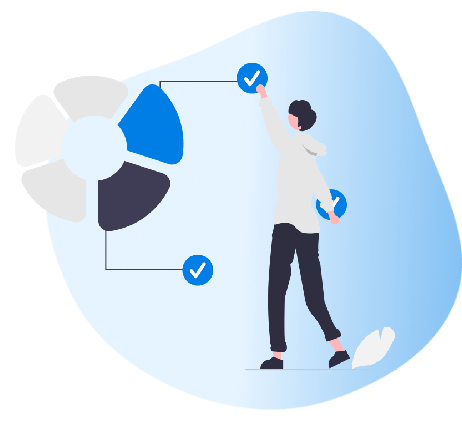What Does the Experience Economy Mean for Modern Workplaces?
The Experience Economy refers to a shift where value is created not just through products or services but through the experiences surrounding them. In simpler terms, it's not just what you offer, but how people feel while engaging with it.
For workplaces, this means that employees no longer want to simply 'do a job.' They want to feel connected, valued, and inspired by their work environment. Just as companies focus on customer experience to retain clients, HRs must now focus on employee experience to retain top talent.
In fact, organizations embracing this mindset see higher engagement, productivity, and loyalty. Think of it this way, an engaged employee in the experience economy isn't just working for the company but growing with it.
TL;DR - Summary!
- The Experience Economy focuses on creating value through memorable and meaningful experiences, not just services.
- For HR, it means prioritizing employee experience at every stage of the journey.
- Personalized engagement, recognition, well-being, and learning drive value.
- HRs are focusing on experiences to attract, engage, and retain talent in the modern workplace.
- Technology, especially HRMS platforms like Qandle, enables HRs to craft seamless, data-backed, and personalized employee experiences.
How Can You Create Value Through Employee Experiences?
Creating value in the Experience Economy starts with understanding that every interaction matters. From onboarding to career development, every touchpoint shapes how an employee perceives the organization.
Here are a few ways HRs can drive value through experience design:
1. Personalize the Employee Journey
Every employee's needs are different. Using data-driven insights, HRs can personalize experiences, whether it's flexible work options, tailored learning programs, or personalized feedback systems.
2. Foster a Culture of Recognition
Simple, genuine appreciation goes a long way. Recognition platforms and peer-to-peer feedback tools help employees feel seen and valued, boosting morale and motivation.
3. Prioritize Well-Being
The employee experience is deeply tied to mental and physical wellness. Offering programs for mindfulness, counseling, or health benefits can help create a holistic work environment.
4. Encourage Continuous Growth
In the experience-driven workplace, employees seek opportunities to learn and evolve. Investing in learning and development platforms empowers them to stay future-ready and connected to organizational goals.
Why Are HRs Prioritizing the Experience Economy Today?
So why are HR leaders talking about the Experience Economy more than ever before? Because employee expectations have evolved, especially in the post-pandemic, hybrid-work era.
Employees now look for meaning, flexibility, and balance. HRs are realizing that the traditional '9 to 5' mindset no longer works. Instead, the focus has shifted toward:
- Building emotional connections rather than just transactional relationships.
- Empowering employees to have a voice and participate in decision-making.
- Designing experiences that align personal growth with business goals.
When employees have great experiences, it reflects in customer satisfaction, brand reputation, and overall company success. Simply put, happy employees create happy customers.
Companies like Google and Salesforce have mastered this approach by integrating culture, technology, and values into their experience frameworks. That's the future HR is heading toward.
Role of Technology in Shaping the Experience Economy
Technology plays a massive role in transforming workplaces into experience-driven ecosystems. HRMS platforms like Qandle empower HR teams to deliver seamless, personalized experiences through automation, analytics, and engagement tools.
Here's how technology is reshaping the Experience Economy within HR:
1. Data-Driven Insights
Modern HR software helps track engagement levels, identify trends, and predict employee needs, allowing HRs to make informed decisions.
2. Employee Self-Service
With intuitive dashboards and mobile apps, employees can manage their own data, access pay slips, and apply for leaves, creating a sense of control and satisfaction.
3. Continuous Feedback and Surveys
Tech-enabled pulse surveys and AI-driven feedback tools help organizations listen to employees in real-time, ensuring concerns are addressed before they turn into retention issues.
4. Seamless Onboarding
Automated onboarding tools ensure that every new hire feels welcomed and ready from day one, setting the tone for a positive experience.
By blending human connection with smart technology, HRs can design experiences that truly resonate.
Want to create a workplace your employees love?
Discover how Qandle's all-in-one HRMS software helps you deliver world-class employee experiences from onboarding to engagement. Book a Free Demo Today!


 Back to Glossary
Back to Glossary